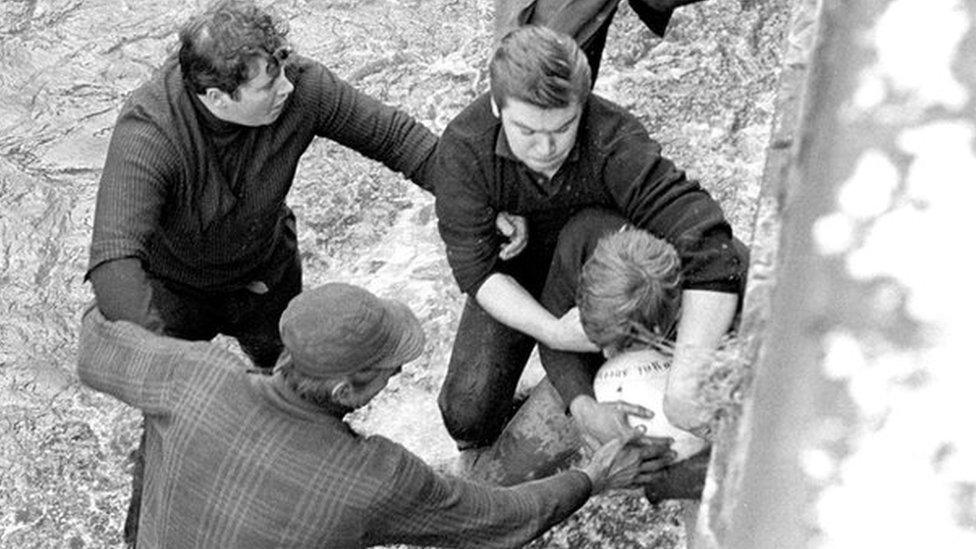Ashbourne Shrovetide Football: Up'Ards take honours on first day
- Published
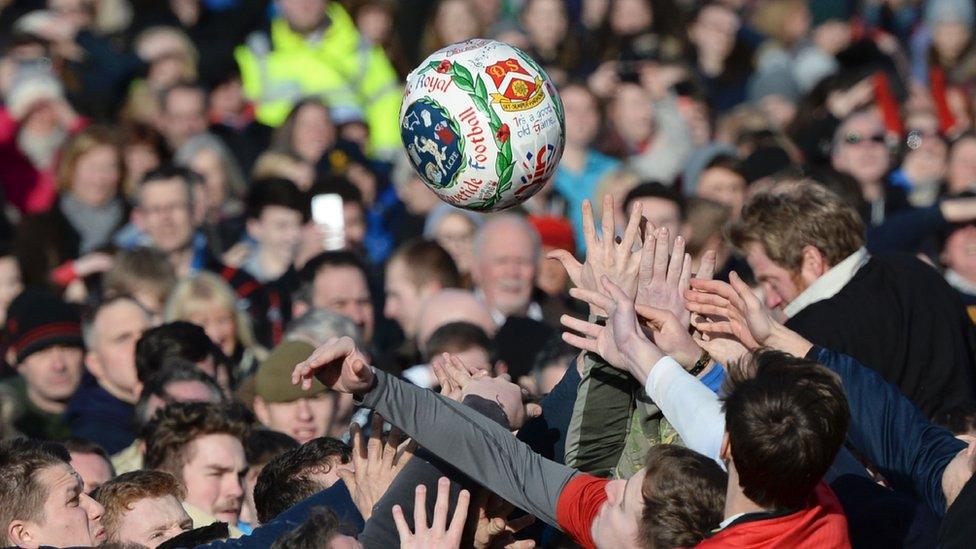
The annual game attracts thousands of people to the small Derbyshire town of Ashbourne
The first day of one of the UK's oldest sporting traditions ended in a goal for the Up'Ards.
Royal Shrovetide Football has been played almost every year in Ashbourne, Derbyshire, since at least the 17th Century.
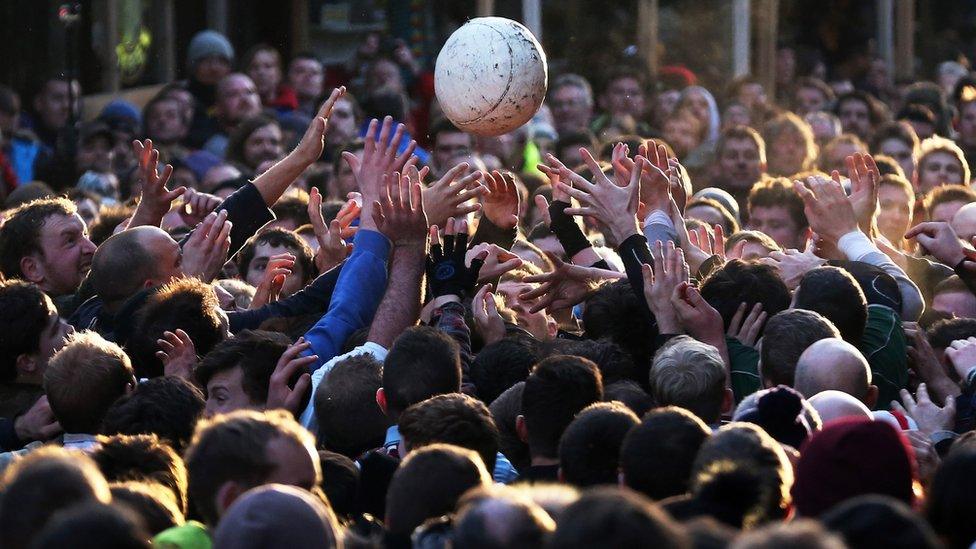
About 2,000 turned up to take part in the annual Shrovetide Football game in Ashbourne Derbyshire
The two-day event pits the Up'Ards - those born north of Henmore Brook - against the Down'Ards with the Up'Ards taking the first day's honours.
A second game will resume at 14:00 on Wednesday.
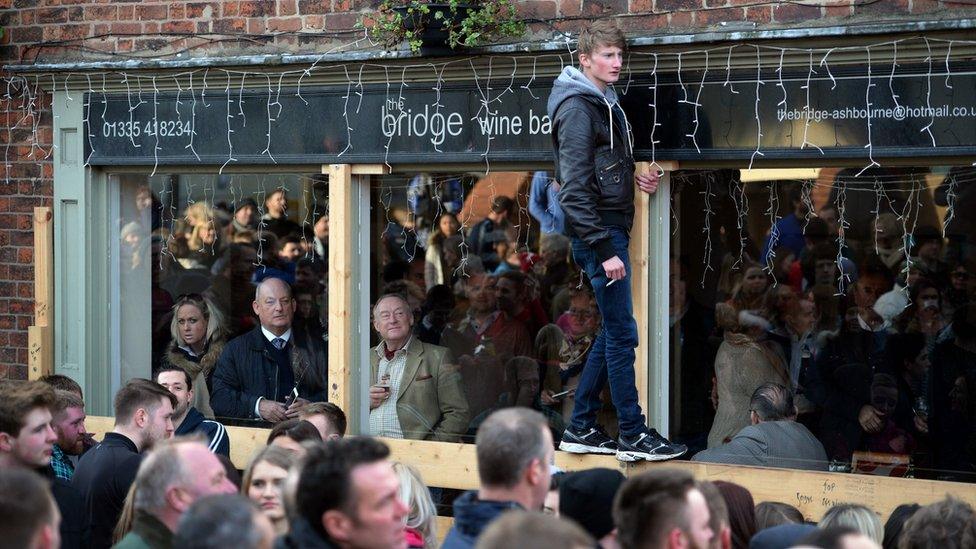
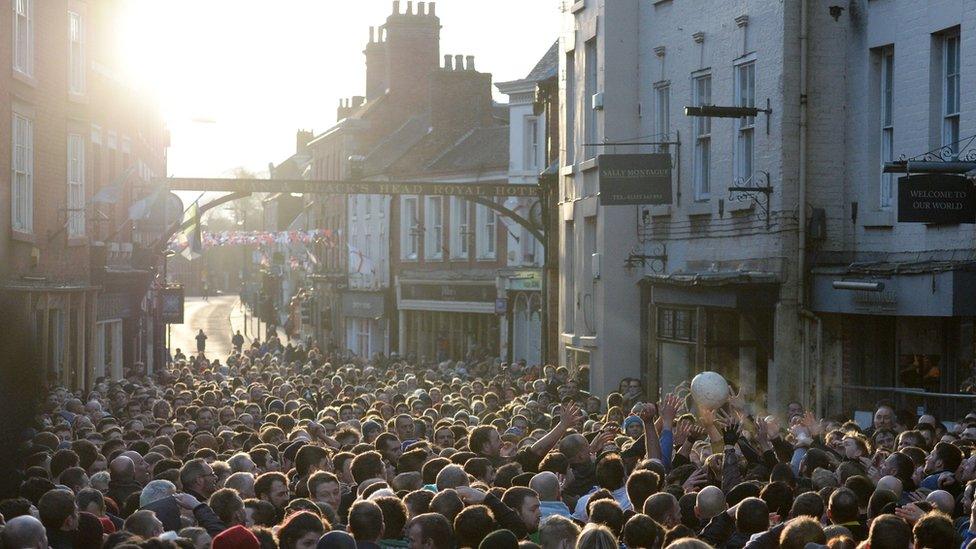
People come from miles around to see and take part in the spectacle
Buildings in Ashbourne were boarded up early on Tuesday to protect windows from the sometimes violent game.
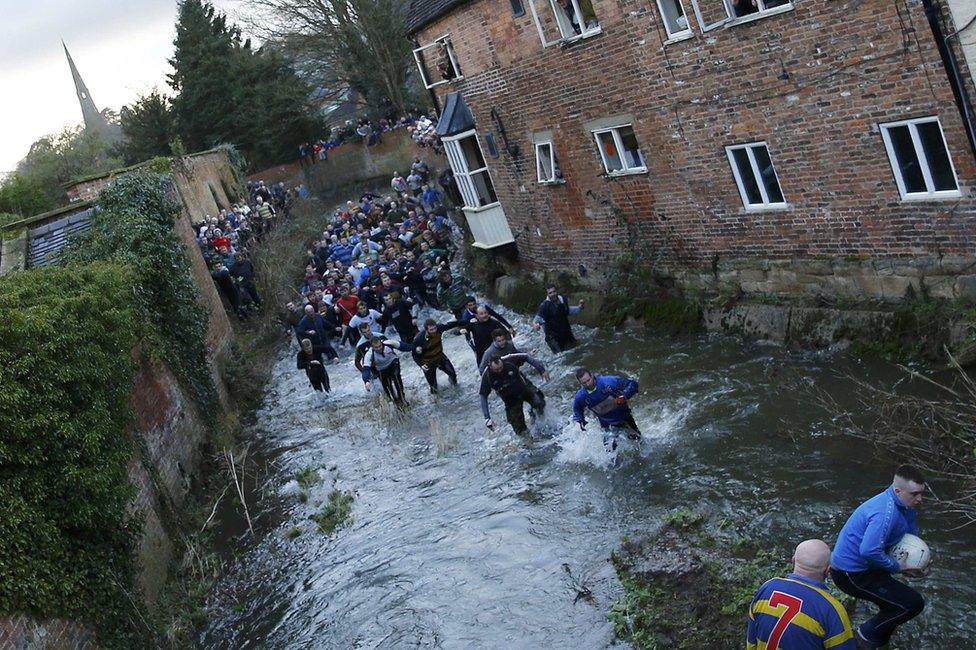
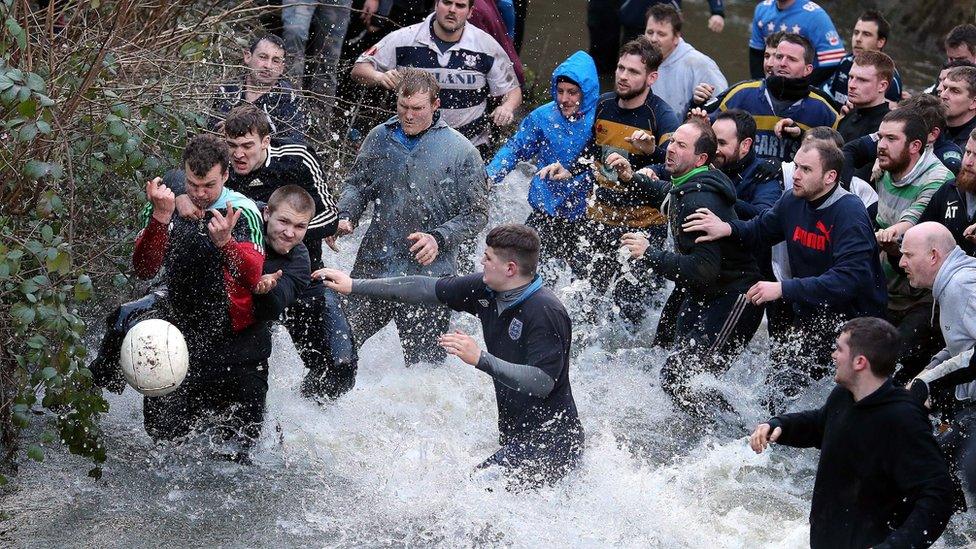
At one point a player made a break along the brook through the town
The game was "turned up" by former Queen Elizabeth Grammar School teacher Barry Greenwood with the Up'Ards "goaling" the ball by banging it three times on a post at Sturston after three hours of ceaseless action.
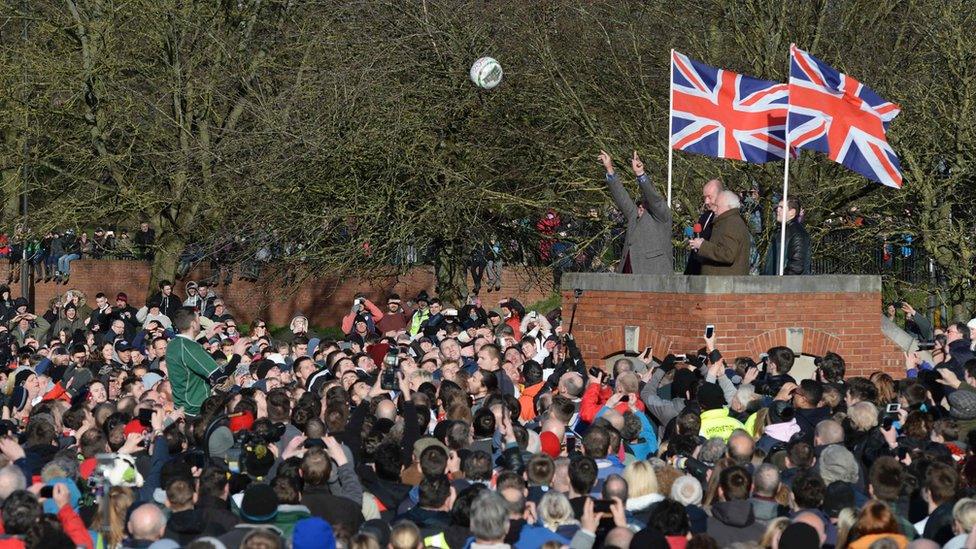
The ball was turned up at about 14:00 on Tuesday by former teacher Barry Greenwood
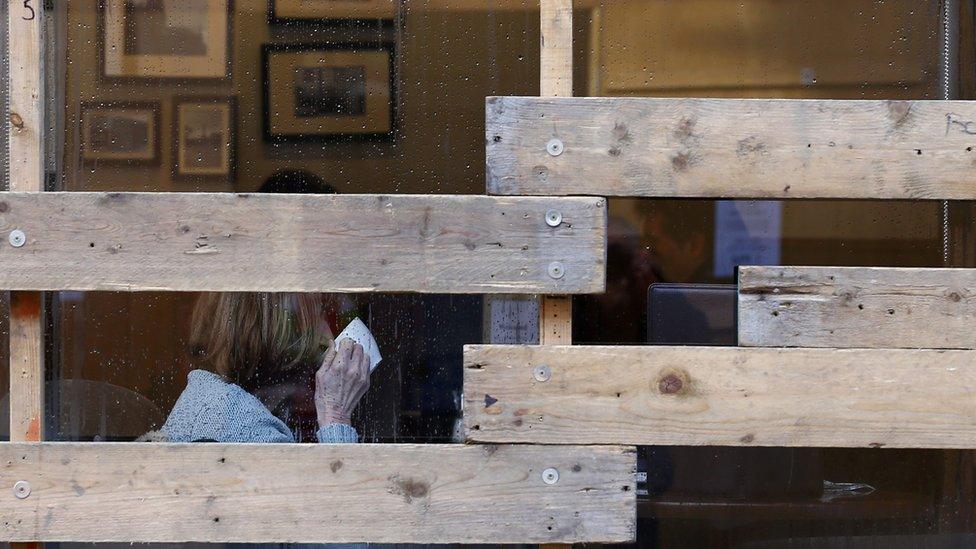
Shops and cafes were boarded up in Ashbourne ahead of the game
The second game, generally a quieter affair played on Ash Wednesday, will be started by D-Day veteran Bill Milward on his 100th birthday.
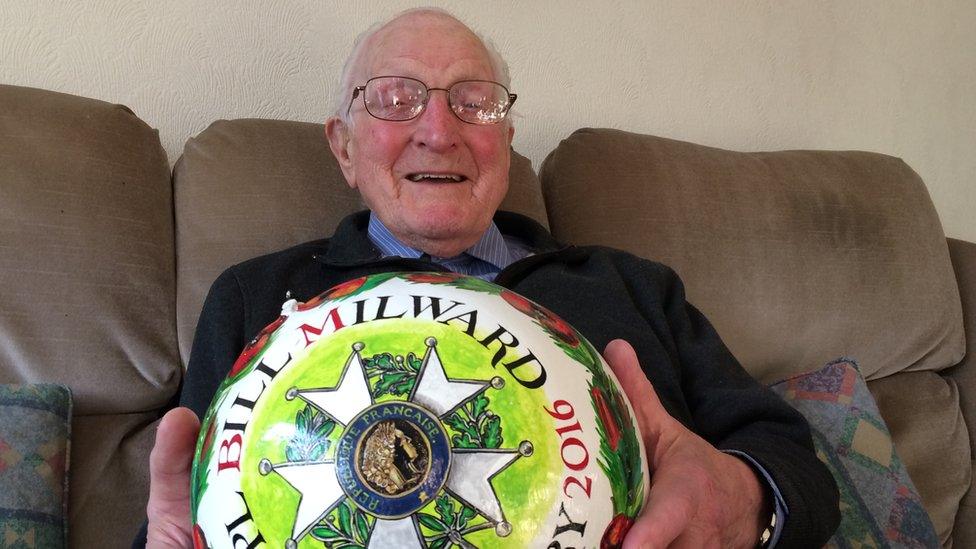
Bill Milward competed in the event as a "Down'Ard" having been born on the lower side of the river Henmore
He took part in the sporting tradition right up until the outbreak of the World War Two, when he drove an amphibious vehicle during the Normandy landings, carrying supplies to troops.
The honour of turning up the ball went to former Queen Elizabeth Grammar School teacher Barry Greenwood with a 99-year-old D-Day Veteran due to start the second day on Wednesday.
Shrovetide returns to Ashbourne

What is Royal Shrovetide Football?
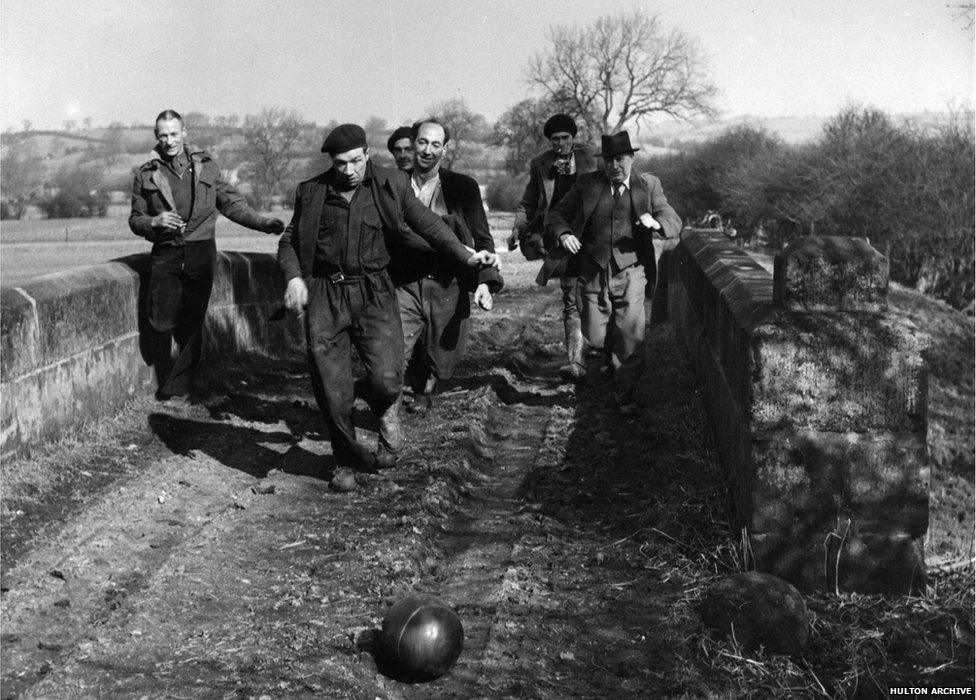
Players chase the ball at the 1952 Shrovetide match
The game has been played from at least 1667, although the exact origins are unknown after the earliest records were destroyed in a fire
It is played over two days on Shrove Tuesday and Ash Wednesday, with it starting at 14:00 each day and ending at 22:00
The two teams that play the game are known as the Up'Ards and the Down'Ards
The actual process of "goaling" a ball requires a player to hit it against the millstone three successive times
The scorer is elected en route to the goal and would typically be someone who lives in Ashbourne


Famous people who have 'turned-up' the ball:
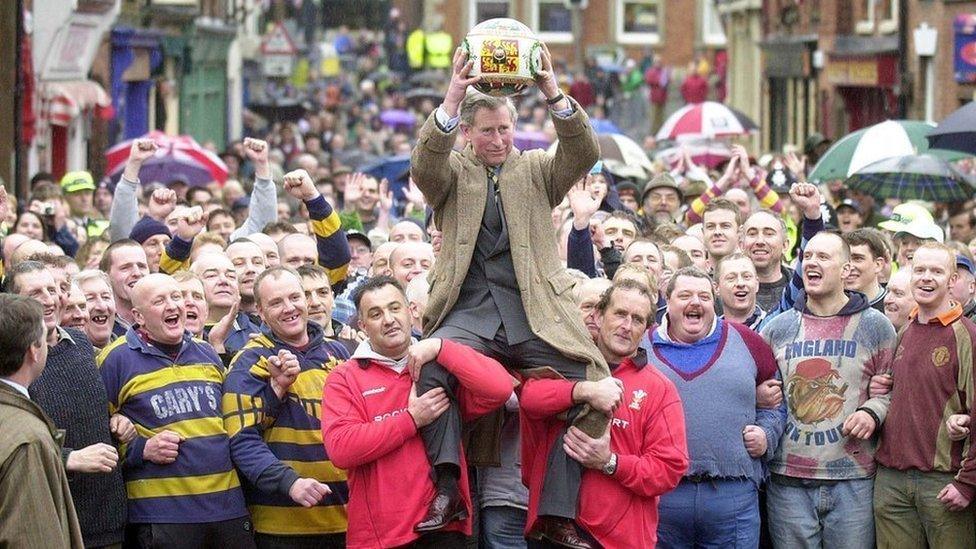
Prince Charles followed in the footsteps of his great uncle King Edward VIII, by starting the event in 2003
2003: Prince Charles
1982: Roy McFarland
1975: Brian Clough
1966: Sir Stanley Matthews
1952: Duke of Devonshire
1928: The Prince of Wales, who later became King Edward VIII

- Published7 February 2016
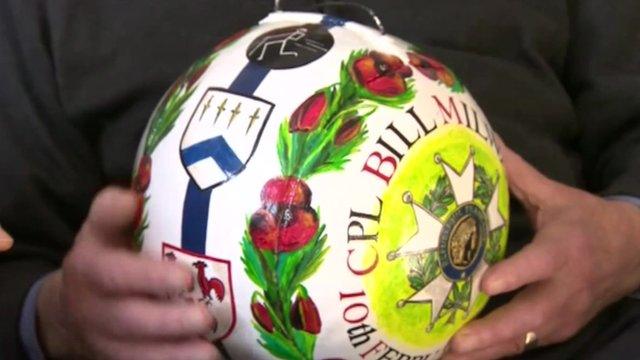
- Published2 February 2016
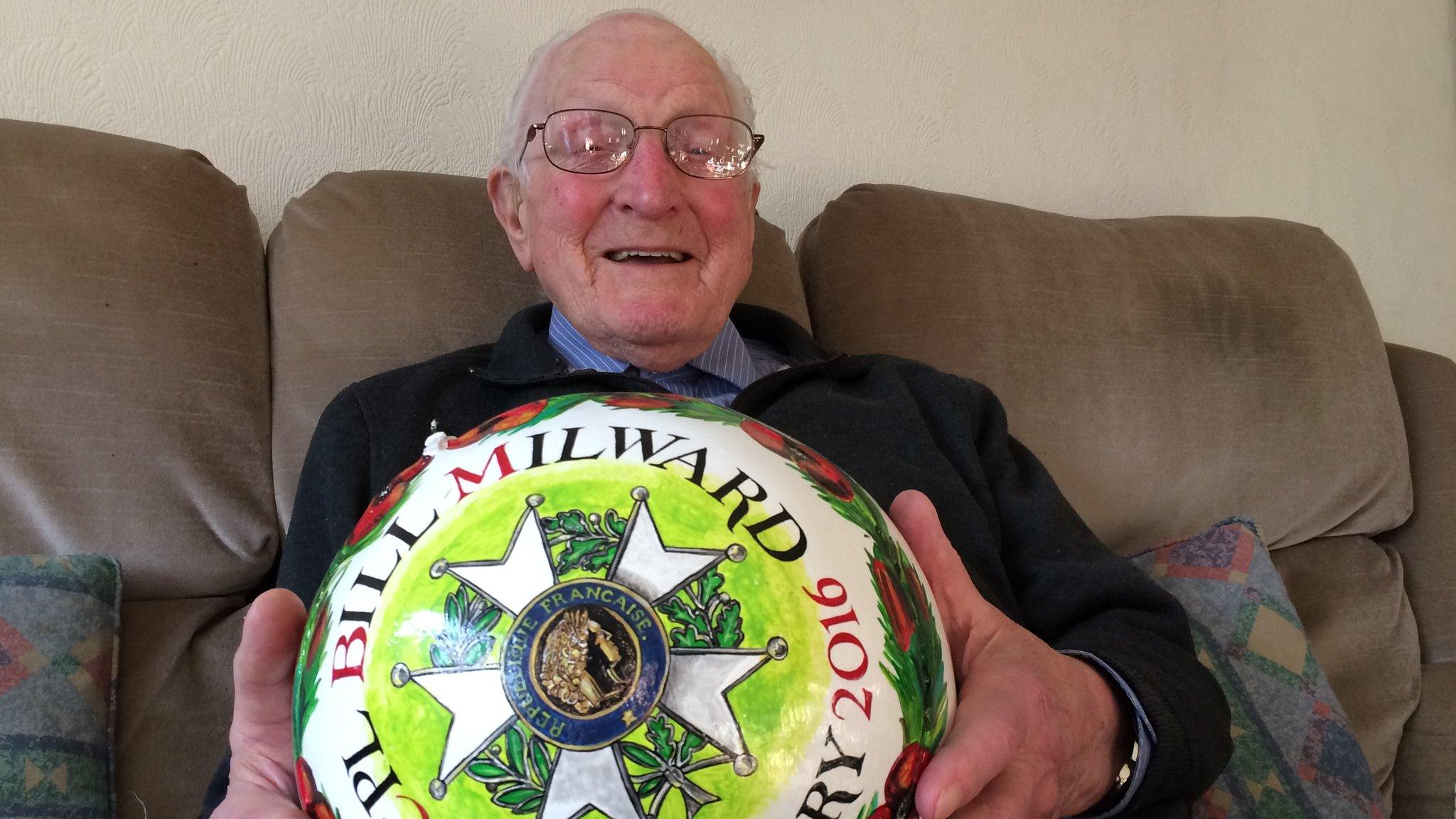
- Published19 February 2015

- Published18 February 2015
